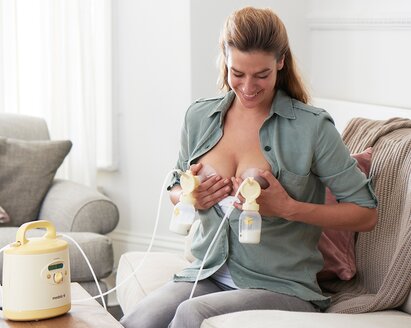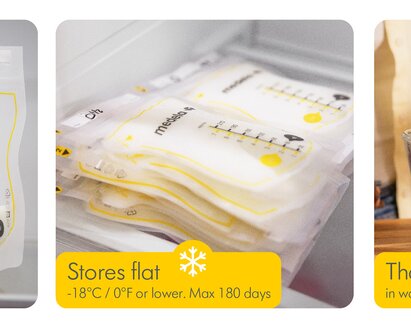
Hands-free Electric
Explore Medela's hands-free electric breast pumps with in-bra collection cups and rechargeable battery. Pump while you multitask. Discover more now!

Classic Electric
Discover Medela's electric breast pumps with 2-Phase Expression technology. Express more milk efficiently and quickly. Explore our advanced pumps today!

Manual
Explore Medela's single manual breast pumps. Ideal for occasional use and lightweight for easy travel. Find your perfect pump today!

Symphony - No 1 Hospital Pump
Explore the Medela Symphony® breast pump—perfect for hospitals and home use with reliable, multi-user performance. Learn more now!

Connectors
Find Medela's connectors for your breast pump to ensure seamless operation and efficient pumping. Get the extra parts you need. Learn more now!

Membranes
Find Membranes for Medela Hands-Free and Symphony Pumps. Replace worn parts to maintain pump efficiency and comfort. Explore options now!

Tubing
Explore Medela’s durable breast pump tubing for reliable, efficient milk expression. Easy to clean and replace. Learn more now!

Shields
Explore Medela's breast shields for comfort and efficiency. Enhance your pumping experience with our high-quality options. Learn more now!

Power units
Find reliable breast pump power adapters from Medela for consistent performance. Upgrade or replace your unit easily. Learn more now!

Hands-free Set

Pumping garments
Find Medela's Pumping Bra and Bustier for easy breastfeeding and pumping. Enjoy comfort and convenience with designs made for busy moms. Learn more!

Maternity & nursing bras
Explore Medela’s maternity bras and bralettes for nursing, crafted for comfort and easy breastfeeding. Ideal for new and expectant mothers. Learn more now!

Hands-free Electric
Explore Medela's hands-free electric breast pumps with in-bra collection cups and rechargeable battery. Pump while you multitask. Discover more now!

Classic Electric
Discover Medela's electric breast pumps with 2-Phase Expression technology. Express more milk efficiently and quickly. Explore our advanced pumps today!

Manual
Explore Medela's single manual breast pumps. Ideal for occasional use and lightweight for easy travel. Find your perfect pump today!

Symphony - No 1 Hospital Pump
Explore the Medela Symphony® breast pump—perfect for hospitals and home use with reliable, multi-user performance. Learn more now!

Connectors
Find Medela's connectors for your breast pump to ensure seamless operation and efficient pumping. Get the extra parts you need. Learn more now!

Membranes
Find Membranes for Medela Hands-Free and Symphony Pumps. Replace worn parts to maintain pump efficiency and comfort. Explore options now!

Tubing
Explore Medela’s durable breast pump tubing for reliable, efficient milk expression. Easy to clean and replace. Learn more now!

Shields
Explore Medela's breast shields for comfort and efficiency. Enhance your pumping experience with our high-quality options. Learn more now!

Power units
Find reliable breast pump power adapters from Medela for consistent performance. Upgrade or replace your unit easily. Learn more now!

Hands-free Set

Pumping garments
Find Medela's Pumping Bra and Bustier for easy breastfeeding and pumping. Enjoy comfort and convenience with designs made for busy moms. Learn more!

Maternity & nursing bras
Explore Medela’s maternity bras and bralettes for nursing, crafted for comfort and easy breastfeeding. Ideal for new and expectant mothers. Learn more now!































